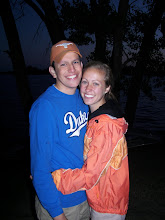
This past week's readings focused on copyright and licensing history, and I found that while these texts don't exactly keep you on the edge of your seat, they kept me more alert than most of what I have read in grad school, primarily because of the fear they strike in me. For example, Lesley Ellen Harris' Licensing Digital Content introduces the "basics" of making and negotiating licenses for electronic resources. While it's all well and good to read about the process, I can't help but ask myself, "Wait...will this be something I'm expected to know how to do in the first job I have out of library school?" Chances are no, I won't. (*whew!) BUT regardless, taking into account that electronic resources are here to stay and the environment surrounding their licensure and use continues to experience change, I very much want to learn all I can to get some grounding to build on in the future when I am called upon to participate in these library activities.
"Copyright makes sense as an incentive if its purpose is to encourage the dissemination of works, in order to promote public access to them" (Litman, 175). The idea that copyright is actually seen as a way to expand access continued to appear throughout the second half of Litman's book, and it still surprises me. It feels too easy, too simplified. Given the heated discussions and issues surrounding how to address copyright law in the digital age, I just don't buy it. It may make sense as an incentive for creators to have ownership of their works, and that they will be compensated and credited for any usage of it. But at the same time, a dissonance still seems present. Copyright promotes access, yet underlying principles of copyright practice attempt to exercise greater control over use.
Intellectual property is something I've heard about during my studies at SLIS. I attended a guest lecture (fall 2009) who discussed intellectual property and copyright, but I remember being entirely confused and struggling to write a decent response paper to prove to my professor at the time that I was indeed in attendance and listening to the presentation. I hope in this semester I'm able to gain a better understanding of intellectual property, and Litman's book was a good introduction to the "big picture" into which intellectual property fits. Moreover, while it was an interesting book to read and I learned much about the details of copyright and licensing history (*cue fireworks), my main takeaway was derived from the same connection that has been made in three of my classes this week: information versus knowledge. I promise not to get too flighty here, but this continuum of information-knowledge was brought up too many times to not stop and reflect on their intersection, tension, and implications for issues of copyright and, subsequently, the people who will be dealing with them in years to come: library school students (aka future rockstars).
Going back to this two-faced purpose of copyright (access vs. policing use), I think a parallel can be drawn. Not necessarily in that access: information, knowledge: policing use, because that doesn't really make sense. Nor is it that access with policed usage leadds to knowledge from controlled information (though I bet there's an interesting op-ed topic laced into that analogy). Rather: why is it that this excruciatingly lengthy, expensive, and relatively unfair battle over the logistics of information and its ownership is what determines how people are allowed - not able, but allowed - to access that which is necessary for education, individual thought, and eventual knowledge? It seems backwards that the means (information) justifies the end ("knowledge" or whatever creative growth and thought comes from what we are allowed to see/use/remember/expand upon/etc). Especially since all along, primary stakeholders have executed a very end-justified agenda, with the ultimate goal to maintain their market position and power.
And then this is the part where I try to tie my musings back to "real life." *distant cricket chirps...... *muffled cough...... *looooong awkward silence.....
To be continued. :)
Image credit: Wikimedia by Lotus Head from Johannesburg, Gauteng, South Africa.



I need to stop looking at this blog post picture. It's making me hungry... :)
ReplyDelete